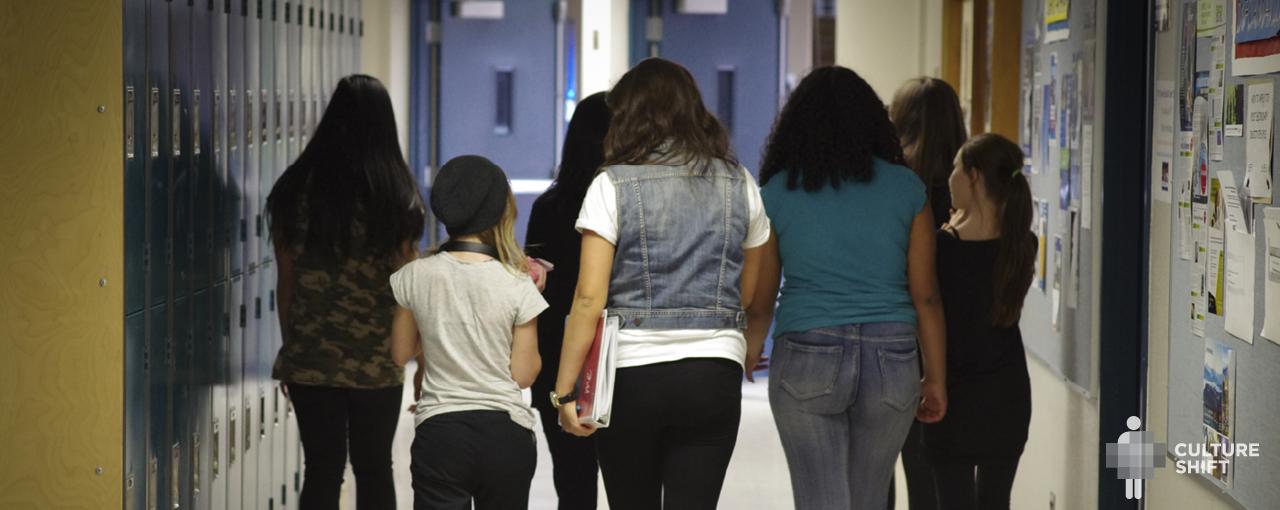
The presence of sexually-objectified women and girls is widespread and as a society we are confronted daily with images of women’s bodies used to sell products. These images reinforce the value of women and girls solely as sex object or thing and contribute to an environment of power imbalance and gender inequality. This has consequences for all people as we struggle to situate ourselves in the gender roles defined by objectification and sexualization.
Sexualization suffers from multiple – often imprecise – definitions. In its essence, sexualization is the act of placing value on a person’s appearance and sexual appeal above all other characteristics. In so doing, the person becomes an object for others’ sexual use rather than being seen as an individual with the capacity for independent agency.
And, while sexualization can and does happen to people of all genders and ages – it is overwhelmingly targeted towards young women and children. Turn on the radio, surf social media or catch any of a range of TV shows and commercials and you will see that time and time again, females are portrayed as sexual objects used to sell products.
In addition to using sex to sell products often not relating to women (Hardee’s Burgers, Excel Gum and Sodastream to name a few), many product use this tactic to impose demeaning, damaging and devaluing sexual “ideals” and expectations on women. These contribute not just to a societal view of women as objects, but are also linked to the three most common mental health challenges women face: anxiety, depression and eating disorders.
Most people who I have engaged with around the issue of sexualization see it as primarily a “youth issue”. While I do agree that without media literacy skills, youth can be the most vulnerable to the sexualized messages in the media, current events have shone a glaring light on how this issue continues to surface at the highest levels of our society such as government.
We’ve spent the last year gathering sources, researching connections and analyzing sexualization in media. We are now posed to fully launch the “Culture Shift” project, a research-based initiative funded by the Status of Women designed to move the dial on attitudes and practices that promote the sexualization of women and girls. This part of the project is funded until September 2018 and will concentrate on community engagement and public education, as well as seeking out opportunities for policy implementation.
I have spent the better part of my career studying this issue and trying to raise consciousness and resilience around it. As project lead for the Culture Shift, I have been out in the community giving presentations on the topic, project findings and recommendations at Big Sisters of BC Lower Mainland, St. George’s School, and the Super Girl Within conference for grade 9 girls in Surrey, BC.
We are seeking more opportunities like this to present and build relationships with unlikely allies in the government and business sectors, so if this is something you feel would be of value in your network please reach out and join me in this movement: ywcavan.org/cultureshift
Lori Boland is the project lead for Culture Shift and can be reached at lboland@ywcavan.org or 604 895 5819

